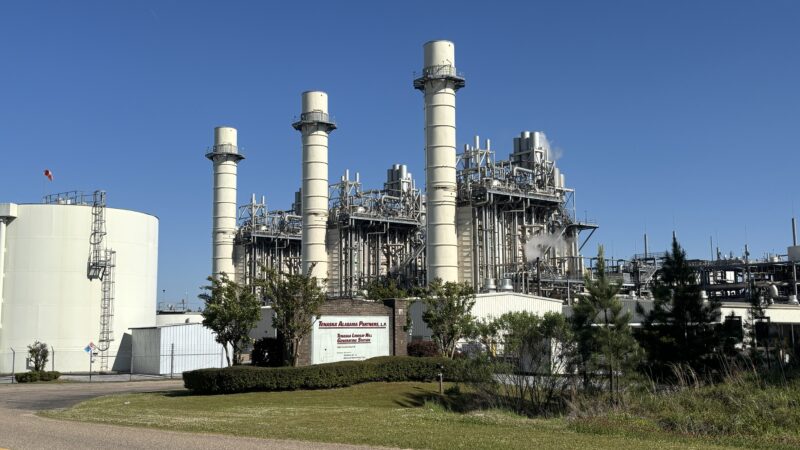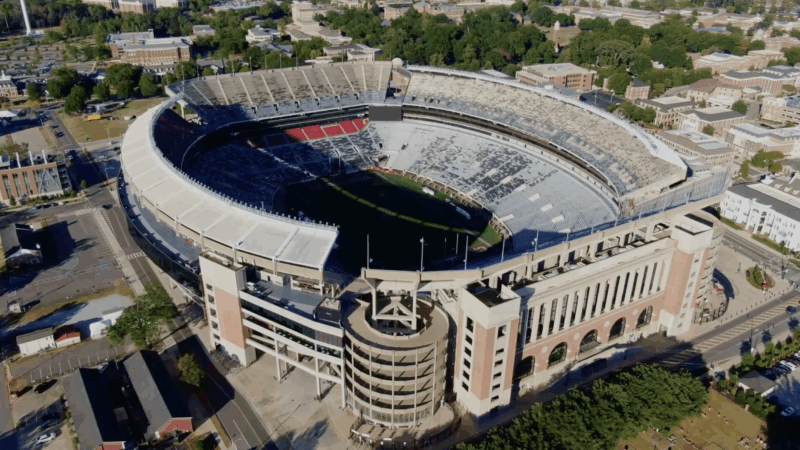Wastewater failures for Lowndes County’s Black residents at center of DOJ investigation
A sign welcomes visitors to Lowndes County in White Hall, Alabama. The U.S. Department of Justice opened an environmental justice investigation in November 2021 into the Lowndes County Health Department, along with the Alabama Department of Public Health, for their wastewater disposal and infectious disease and outbreaks programs.
The U.S. Department of Justice is opening up an investigation into the Alabama Department of Public Health and Lowndes County Health Department over concerns that the wastewater systems in rural Alabama discriminate against poor Black residents.
The investigation, opened Tuesday, is looking into the health departments’ wastewater disposal and infectious disease and outbreaks programs.
In a press release, the department said it is examining whether ADPH and LCHD are violating Civil Rights Law and whether the departments’ policies have reduced Lowndes County’s Black residents’ access to sufficient sewage and water systems and increased their exposure to harmful infections associated with poor wastewater management, such as hookworm — an intestinal parasite widely eliminated elsewhere in the U.S.
Lowndes County, where the population is largely poor and Black, has had complaints of poor infrastructure leading to raw sewage pooling in residents’ yards or backing up into their homes.
“Sanitation is a basic human need, and no one in the United States should be exposed to risk of illness and other serious harm because of inadequate access to safe and effective sewage management,” Kristen Clarke, assistant attorney general for the department’s Civil Rights Division, said in the press release. “State and local health officials are obligated, under federal civil rights laws, to protect the health and safety of all their residents.”
Title VI of the Civil Rights Act of 1964 blocks recipients of federal funding from discriminating based on race, color or national origin. The probe into Lowndes County’s sanitation systems is the department’s first Title VI environmental justice investigation for one of its funding recipients. No conclusions have yet been drawn.
This story was produced by the Gulf States Newsroom, a collaboration between Mississippi Public Broadcasting, WBHM in Birmingham, Alabama, WWNO in New Orleans and NPR.
Auburn tabs USF’s Alex Golesh as its next coach, replacing Hugh Freeze on the Plains
The 41-year-old Golesh, who was born in Russia and moved to the United State at age 7, is signing a six-year contract that averages more than $7 million annually to replace Hugh Freeze. Freeze was fired in early November after failing to fix Auburn’s offensive issues in three seasons on the Plains.
Alabama Power seeks to delay rate hike for new gas plant amid outcry
The state’s largest utility has proposed delaying the rate increase from its purchase of a $622 million natural gas plant until 2028.
Former U.S. Sen. Doug Jones announces run for Alabama governor
Jones announced his campaign Monday afternoon, hours after filing campaign paperwork with the Secretary of State's Office. His gubernatorial bid could set up a rematch with U.S. Sen. Tommy Tuberville, the Republican who defeated Jones in 2020 and is now running for governor.
Scorching Saturdays: The rising heat threat inside football stadiums
Excessive heat and more frequent medical incidents in Southern college football stadiums could be a warning sign for universities across the country.
The Gulf States Newsroom is hiring an Audio Editor
The Gulf States Newsroom is hiring an Audio Editor to join our award-winning team covering important regional stories across Mississippi, Alabama and Louisiana.
Judge orders new Alabama Senate map after ruling found racial gerrymandering
U.S. District Judge Anna Manasco, appointed by President Donald Trump during his first term, issued the ruling Monday putting a new court-selected map in place for the 2026 and 2030 elections.









